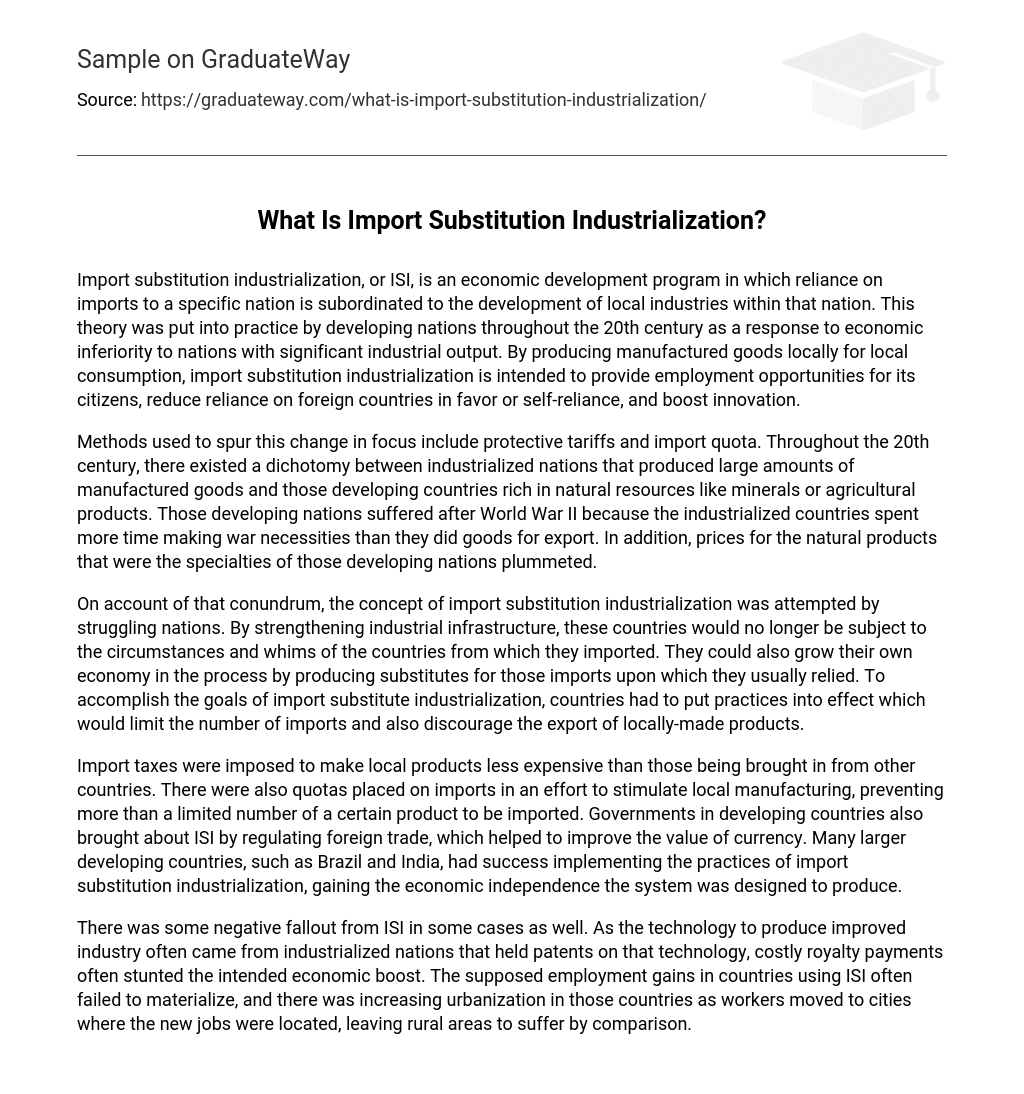Import substitution industrialization, or ISI, is an economic development program in which reliance on imports to a specific nation is subordinated to the development of local industries within that nation. This theory was put into practice by developing nations throughout the 20th century as a response to economic inferiority to nations with significant industrial output. By producing manufactured goods locally for local consumption, import substitution industrialization is intended to provide employment opportunities for its citizens, reduce reliance on foreign countries in favor or self-reliance, and boost innovation.
Methods used to spur this change in focus include protective tariffs and import quota. Throughout the 20th century, there existed a dichotomy between industrialized nations that produced large amounts of manufactured goods and those developing countries rich in natural resources like minerals or agricultural products. Those developing nations suffered after World War II because the industrialized countries spent more time making war necessities than they did goods for export. In addition, prices for the natural products that were the specialties of those developing nations plummeted.
On account of that conundrum, the concept of import substitution industrialization was attempted by struggling nations. By strengthening industrial infrastructure, these countries would no longer be subject to the circumstances and whims of the countries from which they imported. They could also grow their own economy in the process by producing substitutes for those imports upon which they usually relied. To accomplish the goals of import substitute industrialization, countries had to put practices into effect which would limit the number of imports and also discourage the export of locally-made products.
Import taxes were imposed to make local products less expensive than those being brought in from other countries. There were also quotas placed on imports in an effort to stimulate local manufacturing, preventing more than a limited number of a certain product to be imported. Governments in developing countries also brought about ISI by regulating foreign trade, which helped to improve the value of currency. Many larger developing countries, such as Brazil and India, had success implementing the practices of import substitution industrialization, gaining the economic independence the system was designed to produce.
There was some negative fallout from ISI in some cases as well. As the technology to produce improved industry often came from industrialized nations that held patents on that technology, costly royalty payments often stunted the intended economic boost. The supposed employment gains in countries using ISI often failed to materialize, and there was increasing urbanization in those countries as workers moved to cities where the new jobs were located, leaving rural areas to suffer by comparison.





